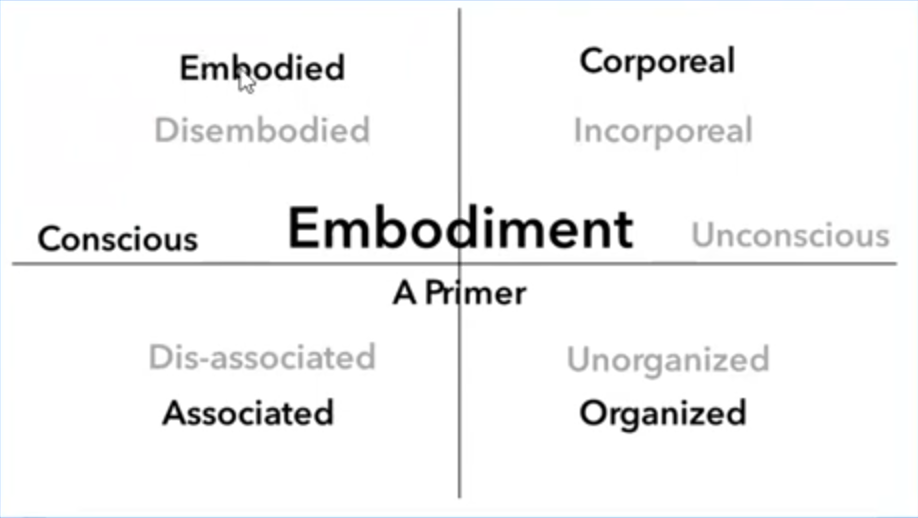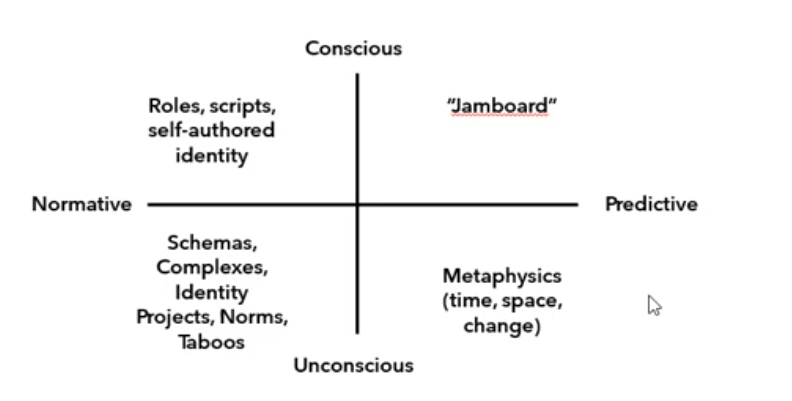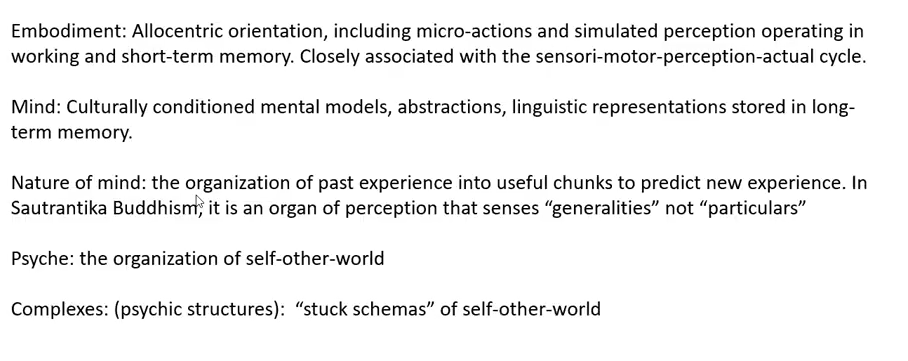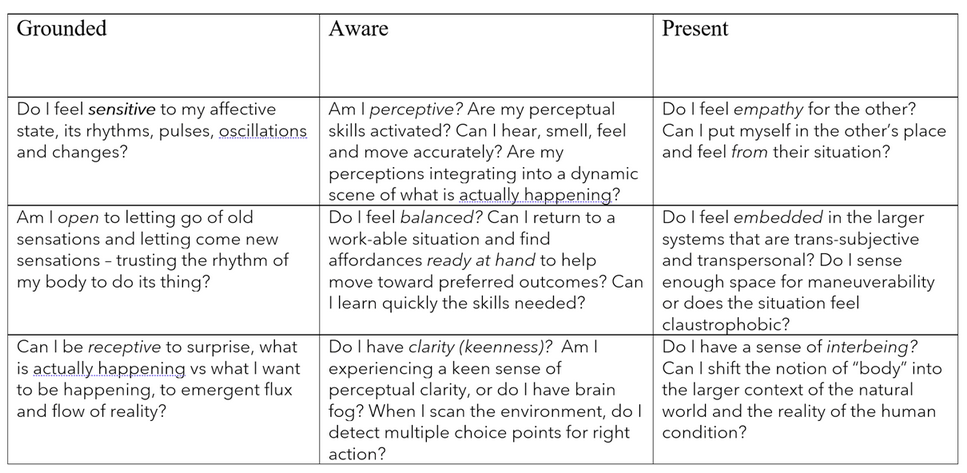Embodiment Course Content Entry #1
by bonnitta-roy
- Embodiment Course Session I 9-10/12 noon
- Embodiment Session II Sept 15 12 noon
- Embodiment Session II Recording Sept 16 4am
- Embodiment Course Session 3 9 28 12 noon
- Embodiment Course 3 Sept 28 4 am
A Primer - The taxonomy of Embodiment
We want to be carefull with language. There are different things going on and to be able to discern them. A taxonomy for that.

Embodied - Disembodied
Unconscious - Conscious
Corporeal - Incorporeal
Orgnaized/Coherent - DisOrganized/Unorganized/Incoherent
Associate - DisAssociate
Pointers
- Unskillful vs Unhealthy
Concepts
- subtle noticing
- exercise: alphabet and than reverse
- subtle noticing
mind psyche


1. The body as a dispositional-state - a mood
- Your mood is a result of the configurations of your body — your sensations, your heart rate, the interaction of your parasympathetic and sympathetic nervous system, vagal tone, the processes of your enteric mind (gut biome), different neuro-affective chemicals in your bloodstream, genetic and epigenetic processes associated with sleep (or lack thereof), steroid and hormone levels, homeostatic regulatory systems, and on and on.
- The critical thing about mood as disposition means that it creates a possibility space. A mood will tend toward some experiences, some perceptions, some actions, and not others. What we are saying, is that mood sets the boundaries of your world-experience.
- one of the fundamental purposes of embodiment training is to train yourself to access moods that lead to preferable outcomes.
- A good dispositional state is called being grounding
- Do I feel sensitive to my affective state, its rhythms, pulses, oscillations and changes?
- Am I open to letting go of old sensations and letting come new sensations — allowing the rhythm of my body to do its thing?
- Can I be receptive to surprise, what is actually the case vs what I want to be the case, to emergent flux and flow of reality?
2. The body as a positional state - affordances and skills
The skills that are available to you, position you to take advantage of what the world affords. This is where practice or aeskesis (practical wisdom) comes into play with respect to embodiment.
The more skills I have, the better my body is in the position to take appropriate action in any given situation. I don’t have to feel “on guard” because I don’t feel “off guard.” Therefore I am not experienced as a “guarded individual.” Rather, I have the skillful means to be soft, fluid and responsive.
How the notion of affordance and skills inter-related can be best explained by an example: When I look at the rock face of El Capitan, I don’t see any opportunity at all to climb it. But when Alex Honnold looks up at it, he sees all kinds of ways to climb it. This is now affordances — what the world offers— and skills — what I am able to do — participate in bringing forth a world of possibility for me.
A good positional state is called being awareness
- Am I perceptive? Are my perceptual skills activated? Can I see, hear, smell, feel, accurately, and are my perceptions integrating into a dynamic scene of what is actually happening?
- Do I feel balanced? Can I return to a work-able situation and find affordances in the situation that can help move toward preferred outcomes? Can I learn quickly the skills I need?
- Do I have clarity (keenness)? Do I have brain fog? Or am I experiencing a keen sense of perceptual clarity which reveals key choice points for right speaking and acting?
3. The body as gesture- relational state
- A good relational state is called being presence
- Do I have empathy for the other? Can I put myself in the other’s place and feel from their situation by feeling from their situation?
- Do I feel embedded in the larger system that is intersubjective and transpersonal and that I can exercise my agency in the system? Do I feel like there is plenty of space to maneuver, or does the situation feel too dense and claustrophobic?
- Do I have a sense of interbeing where the very notion of “body” grows into a larger context of self-other-world? Can I expand even the notion of body to include the natural world and its processes, as well as the inter-objective relations that are participating in the background?
Guideposts Table
